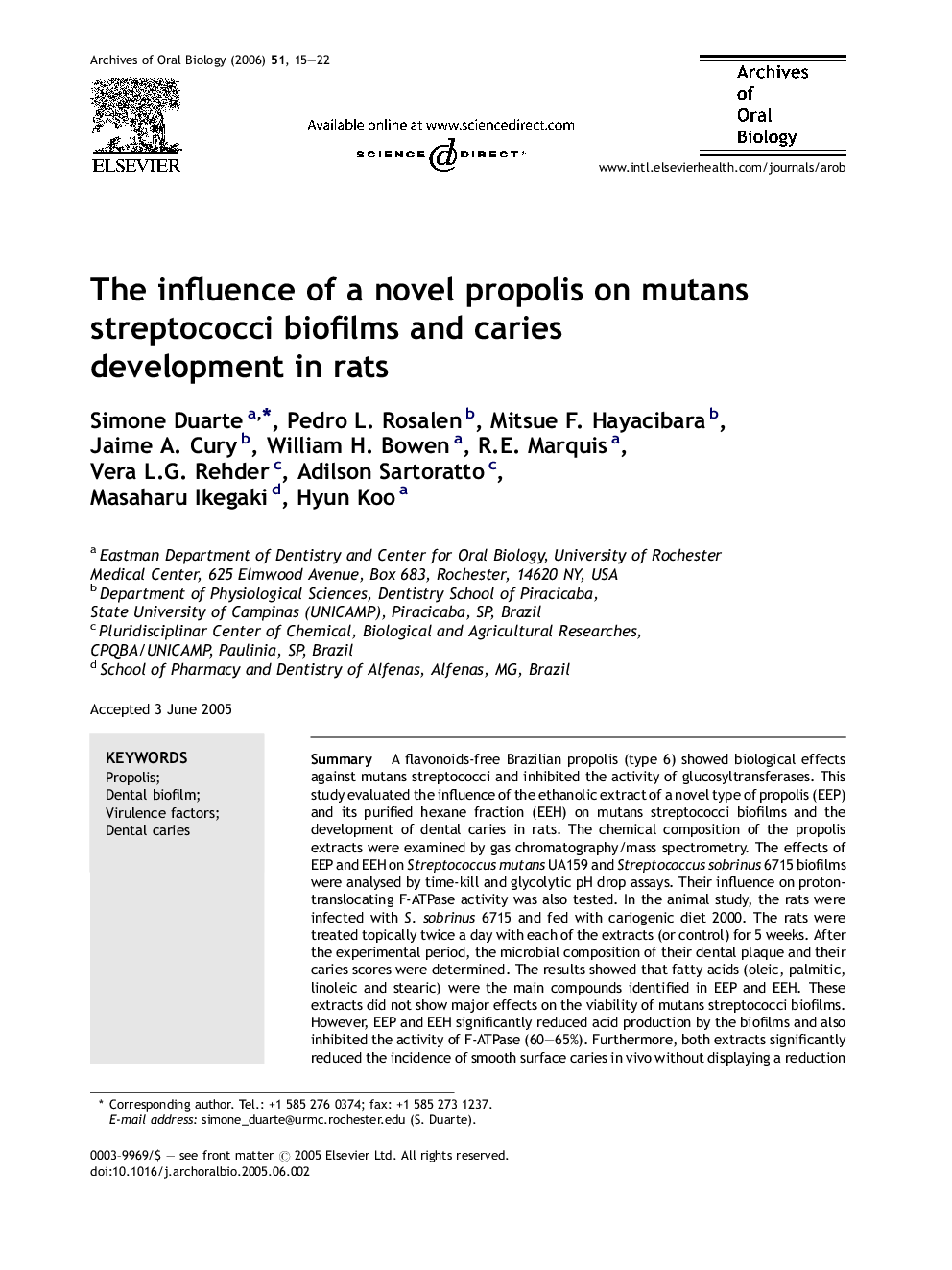| کد مقاله | کد نشریه | سال انتشار | مقاله انگلیسی | نسخه تمام متن |
|---|---|---|---|---|
| 3121978 | 1583414 | 2006 | 8 صفحه PDF | دانلود رایگان |

SummaryA flavonoids-free Brazilian propolis (type 6) showed biological effects against mutans streptococci and inhibited the activity of glucosyltransferases. This study evaluated the influence of the ethanolic extract of a novel type of propolis (EEP) and its purified hexane fraction (EEH) on mutans streptococci biofilms and the development of dental caries in rats. The chemical composition of the propolis extracts were examined by gas chromatography/mass spectrometry. The effects of EEP and EEH on Streptococcus mutans UA159 and Streptococcus sobrinus 6715 biofilms were analysed by time-kill and glycolytic pH drop assays. Their influence on proton-translocating F-ATPase activity was also tested. In the animal study, the rats were infected with S. sobrinus 6715 and fed with cariogenic diet 2000. The rats were treated topically twice a day with each of the extracts (or control) for 5 weeks. After the experimental period, the microbial composition of their dental plaque and their caries scores were determined. The results showed that fatty acids (oleic, palmitic, linoleic and stearic) were the main compounds identified in EEP and EEH. These extracts did not show major effects on the viability of mutans streptococci biofilms. However, EEP and EEH significantly reduced acid production by the biofilms and also inhibited the activity of F-ATPase (60–65%). Furthermore, both extracts significantly reduced the incidence of smooth surface caries in vivo without displaying a reduction of the percentage of S. sobriuns in the animals’ plaque (P < 0.05). However, only EEH was able to reduce the incidence and severity of sulcal surface caries (P < 0.05). The data suggest that the cariostatic properties of propolis type 6 are related to its effect on acid production and acid tolerance of cariogenic streptococci; the biological activities may be attributed to its high content of fatty acids.
Journal: Archives of Oral Biology - Volume 51, Issue 1, January 2006, Pages 15–22